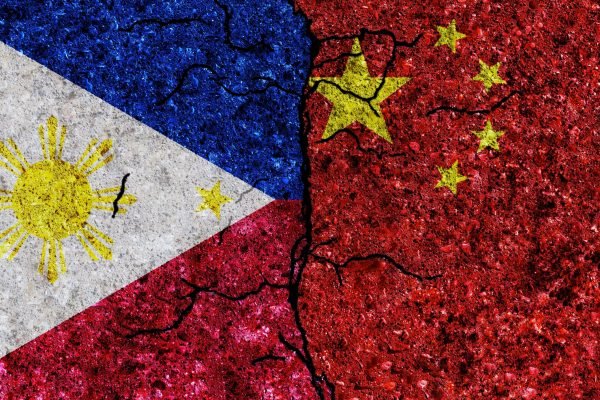The increasing influence of China in various aspects of Philippine life—from politics to economy, and society—has raised alarms about the future of Philippine sovereignty and the broader geopolitical stability in the South China Sea. This essay explores the multifaceted nature of this influence, the reaction it has elicited within the Philippines, and the potential implications for the brewing conflict in the West Philippine Sea (South China Sea).
Political Influence and Elite Complicity
Chinese influence in the Philippines is not a recent development, but its intensity has markedly increased over the past decade. One significant avenue through which China has exerted its influence is through elite political figures. Under President Rodrigo Duterte, there was a marked pivot towards China, characterized by economic agreements and a more conciliatory stance on territorial disputes. This shift was initially expected to continue under President Ferdinand “Bongbong” Marcos Jr., given his close association with Duterte’s political camp.
However, Marcos Jr. has taken a more nuanced approach. While he has continued to engage economically with China—securing substantial investments for infrastructure projects—he has also revitalized security ties with the United States. This dual strategy reflects both an economic pragmatism and a response to nationalistic pressures to protect Philippine sovereignty, especially in the contested waters of the South China Sea.
Marcos Jr.’s actions, such as enhancing defense cooperation with the United States and adopting a firmer stance against Chinese maritime encroachments, can be seen as part of a broader strategy to bolster his political legitimacy by appealing to nationalist sentiments. This maneuvering also aims to restore the tarnished reputation of the Marcos family by projecting strength and independence in foreign policy.

Economic Penetration
Economically, Chinese investments in the Philippines have been both a boon and a bane. The proliferation of Philippine Offshore Gaming Operators (POGOs) exemplifies this complex relationship. While POGOs have brought economic benefits, including employment and government revenue, they have also been linked to various social and legal issues, such as crime, tax evasion, and national security threats. Reports of illegal POGO operations and their connections to Chinese criminal syndicates highlight the darker side of this economic engagement.
In provinces like Catanduanes, Chinese economic influence is pervasive, with Chinese nationals reportedly controlling significant sectors, from beachfront properties to local media outlets and critical infrastructure. This control extends to illegal activities such as unregulated mining, raising concerns about environmental degradation and the erosion of local economic autonomy. Such developments underscore the complex and often contentious nature of Chinese economic involvement at the grassroots level in the Philippines.
Social and Cultural Impacts
The social impact of Chinese influence is evident in various ways, from the influx of Chinese workers and students to the cultural integration challenges they bring. The surge of Chinese nationals working in POGOs and other sectors has strained local communities, leading to social tensions and accusations of preferential treatment. Additionally, the presence of Chinese students in strategic regions like Cagayan has sparked fears of potential sleeper cells, further complicating the social landscape.
The Brewing Conflict in the South China Sea
The South China Sea dispute remains a flashpoint in Philippines-China relations. China’s aggressive actions, such as the deployment of maritime militia and the construction of artificial islands, have been met with increasing resistance from the Philippines. The Marcos administration’s decision to strengthen military alliances with the United States and other regional powers is a clear indication of its strategic pivot to counterbalance Chinese assertiveness.
The Philippine government’s actions, however, must be viewed with caution. The brewing conflict with China carries the risk of escalation into a full-blown military confrontation, which neither the Filipino nor Chinese populations may desire. War would have devastating consequences for both nations, disrupting economies and causing widespread human suffering. There is also the danger that nationalist fervor could be exploited by elites in both countries to further entrench their power and divert attention from domestic issues.
Role of Political Elites
President Marcos Jr.’s strategic balancing act between engaging with China economically while strengthening security ties with the U.S. serves multiple political objectives. It aims to portray him as a leader capable of navigating complex international waters, thus enhancing his domestic political standing. Critics argue that this strategy also serves to solidify the Marcos family’s political legacy and distract from ongoing issues of corruption and governance.
This geopolitical tightrope walk is fraught with risks. If mismanaged, it could lead to increased tensions and potential conflict in the South China Sea. Moreover, the manipulation of nationalist sentiments for political gain could stoke xenophobia and social unrest, further complicating the Philippines’ internal dynamics and its external relations.
Conclusion
China’s creeping influence in Philippine politics, economy, and society presents a complex challenge that requires careful and strategic management. While economic engagement with China offers substantial benefits, it also poses significant risks to national security and social stability. The brewing conflict in the South China Sea necessitates a measured approach that balances assertiveness with diplomacy to avoid escalation. Ultimately, the Filipino and Chinese peoples, who share centuries of cultural and economic ties, must not be caught in the crossfire of elite-driven geopolitical maneuvering. Instead, fostering mutual understanding and cooperation should be the cornerstone of managing this intricate relationship.










